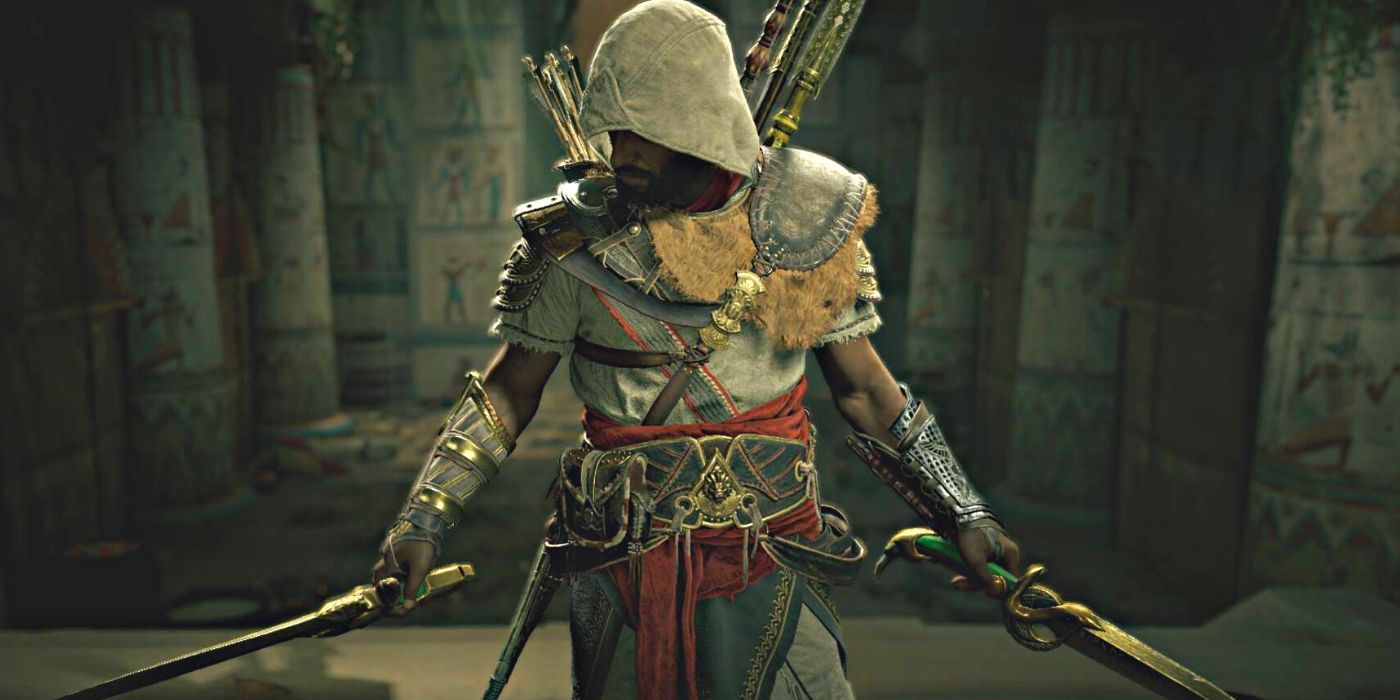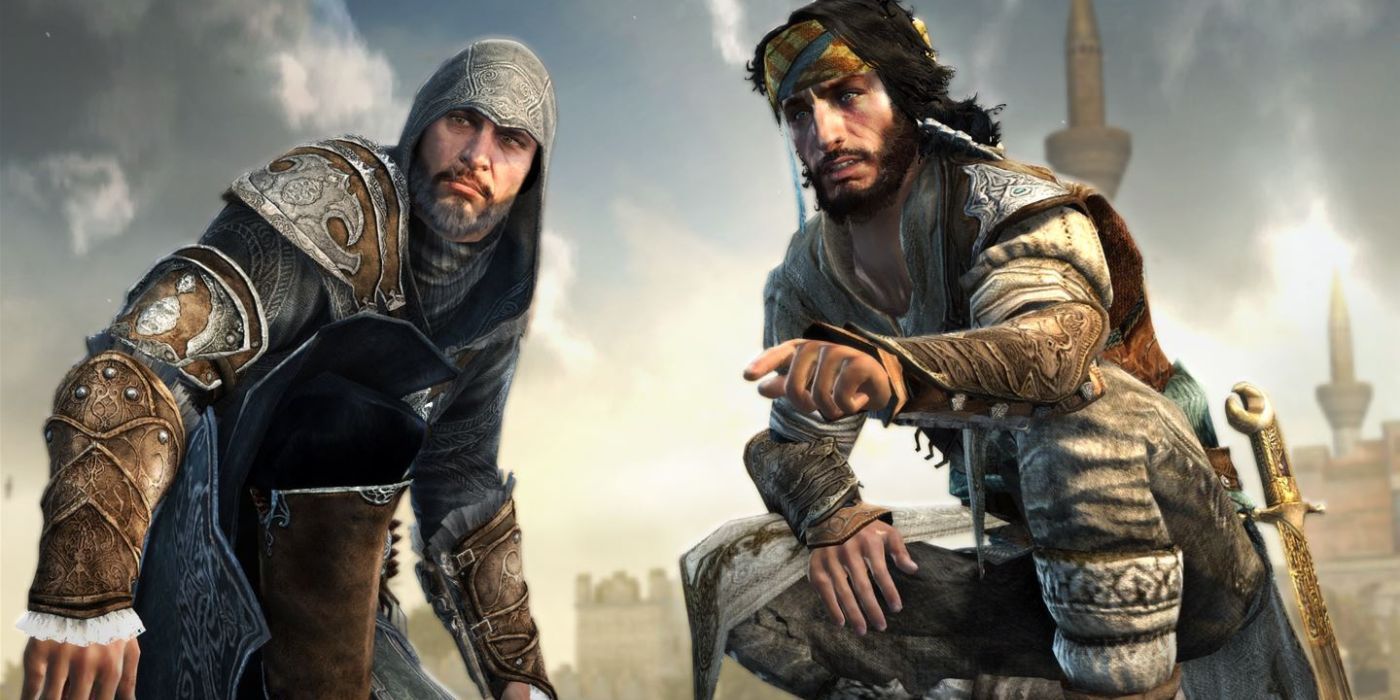The original Assassin's Creed was first created by the Hidden Ones in ancient Egypt, but centuries later the group became more established and changed its name entirely to reflect its reformed position. As time progressed down through the ages, the Brotherhood continued to fight against their sworn enemy, the Templar Order, to gain control over Assassin's Creed's mythological Isu artifacts. It was because of one individual that the Assassins (Hidden Ones) would eventually take on an outward presence, yet still retain much of the group's secrecy.
Assassin's Creed Origins follows the beginning stages of the Brotherhood with the Medjay, Bayek, and his wife, Aya of Alexandria. Their role was to protect the everyday people of Egypt from the corrupt leadership of the Ptolemaic Era, which had been manipulated by the Order of Ancients in the background. As time went on, the Brotherhood spread to different areas and adopted the Creed, becoming known as the Hidde Ones. However, they never took an outwardly official position, not until centuries later during the Medieval period. The past three Assassin's Creed games were during a time in history when the Brotherhood still used the Hidden Ones title, but it confused some players because it was the first time it had been used in the series. Nevertheless, the name change marks one of the most significant points of transition for the Assassin Brotherhood.
Hassan Sabbah, a Persian leader of the Assassins, was the first person to initiate the reformation movement within the Hidden Ones' circle. His influence led to a major shift in the way that the Brotherhood operated, and as a result, the name change happened under his jurisdiction. With the newfound power, however, came consequences that the Hidden Ones didn't have to deal with on the same scale.
The Brotherhood Reformation Lead To Its Name Change
Prior to the events that unfolded in the smaller Assassin's Creed (2007) story with Altair, Hassan had already established the Assassin Brotherhood as a sovereign state, making the capital city Alamut in Persia. This was a key breakaway from the original premise that the group was to remain underground and "in the shadows," making it more like a nation rather than a secret group that fights against tyranny quietly. Although the Brotherhood changed its name and created a manifested hub for the world to see, much of its practices and procedures stayed in the dark to the outside world. What the reformation did do was organize the Assassins into a recognizable power and give them a more formalized face.
One of the blowbacks of becoming a sovereign state was that it made the Brotherhood more susceptible to outside attacks and inside infiltrations, meaning the decision wasn't without its consequences. Regardless, the events still stand as one of the biggest moments in the life of Assassin Creed history.


